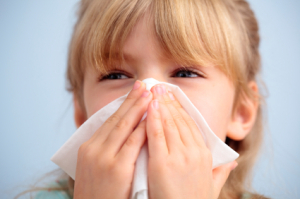Whooping cough declared epidemic in California
by
Heather Mayer, DOTmed News Reporter | June 28, 2010

Whooping cough on the rise
California declared a whooping cough epidemic last week after 1,000 cases and five infant deaths had been reported, according to the state's Department of Public Health.
"We're on track for the worst [outbreak] in 50 years," the department's spokesman Michael Sicilia told DOTmed News.
Outbreaks of pertussis, the scientific name for whooping cough, tend to peak in July and August, but already there have been five more deaths than this time last year, said Sicilia.
The early symptoms, including a runny nose, mimic a cold and often go undiagnosed. Coughing worsens and can last weeks and even months. In children, where the illness is most severe, coughing takes on a whooping sound.
The outbreaks tend to be cyclical, every five years, explained Sicilia, possibly due to the fact that every two to five years the immunizations wear off.
"It may be a window of vulnerability where a large number of the population is vulnerable," he said. "Adults can get it, and often they infect children."
According to the Centers for Disease Control and Prevention, there are 5,000 to 7,000 cases in the United States during a normal year.
The five deaths reported in California were all infants under the age of three months. A series of pertussis vaccinations start at age two months, but infants are not completely immunized until six months.
"Caregivers can create a cocooning effect" by updating their immunizations, said Sicilia. He also pointed out that just five years ago a new vaccine came out for adults, which includes protection against tetanus, diphtheria and pertussis, called Tdap.
The worst outbreak California experienced in the "modern era," or since the vaccine was developed, was in 2005, when more than 3,000 cases were reported and eight people died.
If diagnosed in the early stages -- within the first two weeks -- whooping cough can be treated with antibiotics. But after that period, it must run its course, and sufferers are contagious for a full month, explained Sicilia.
